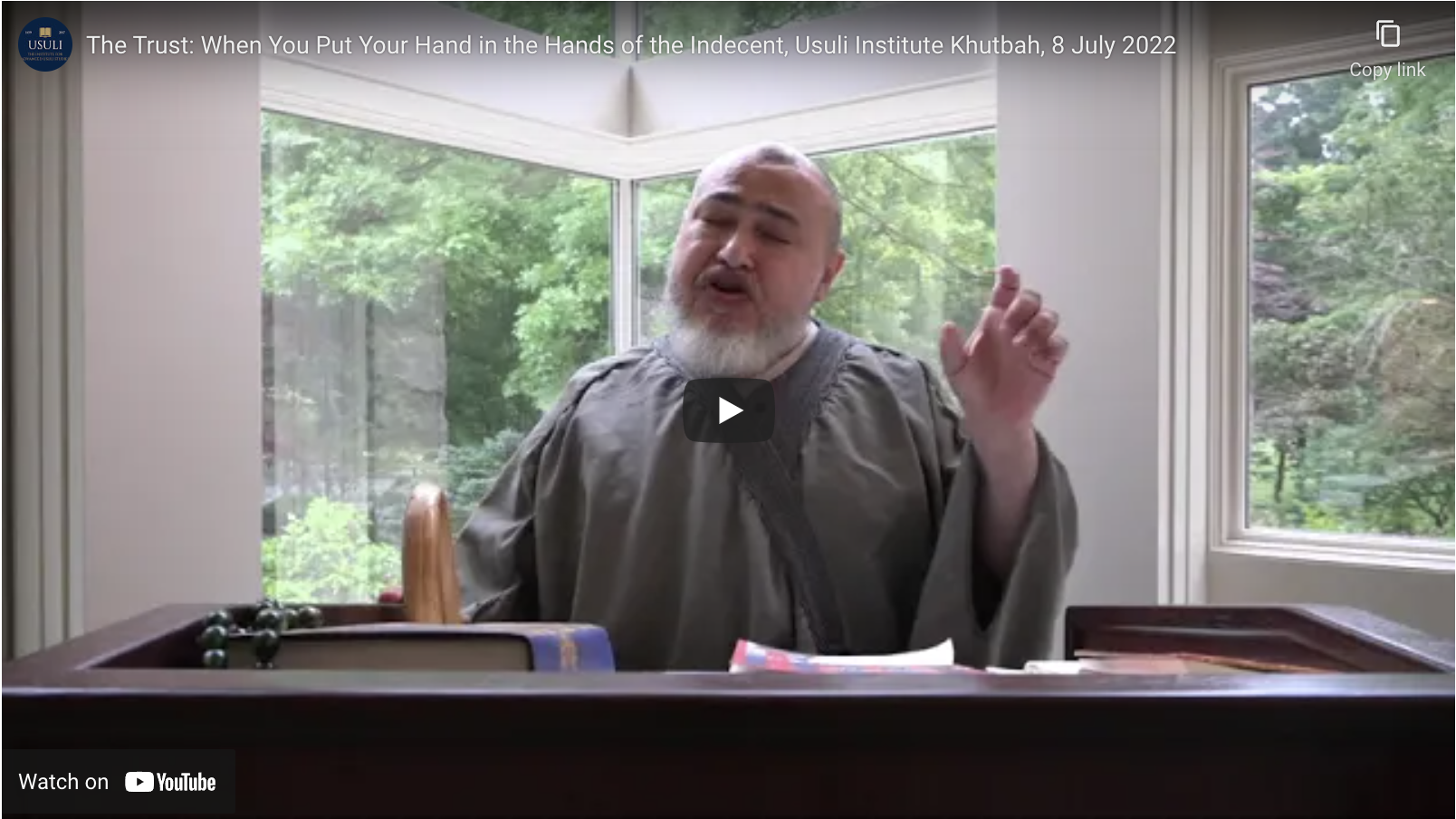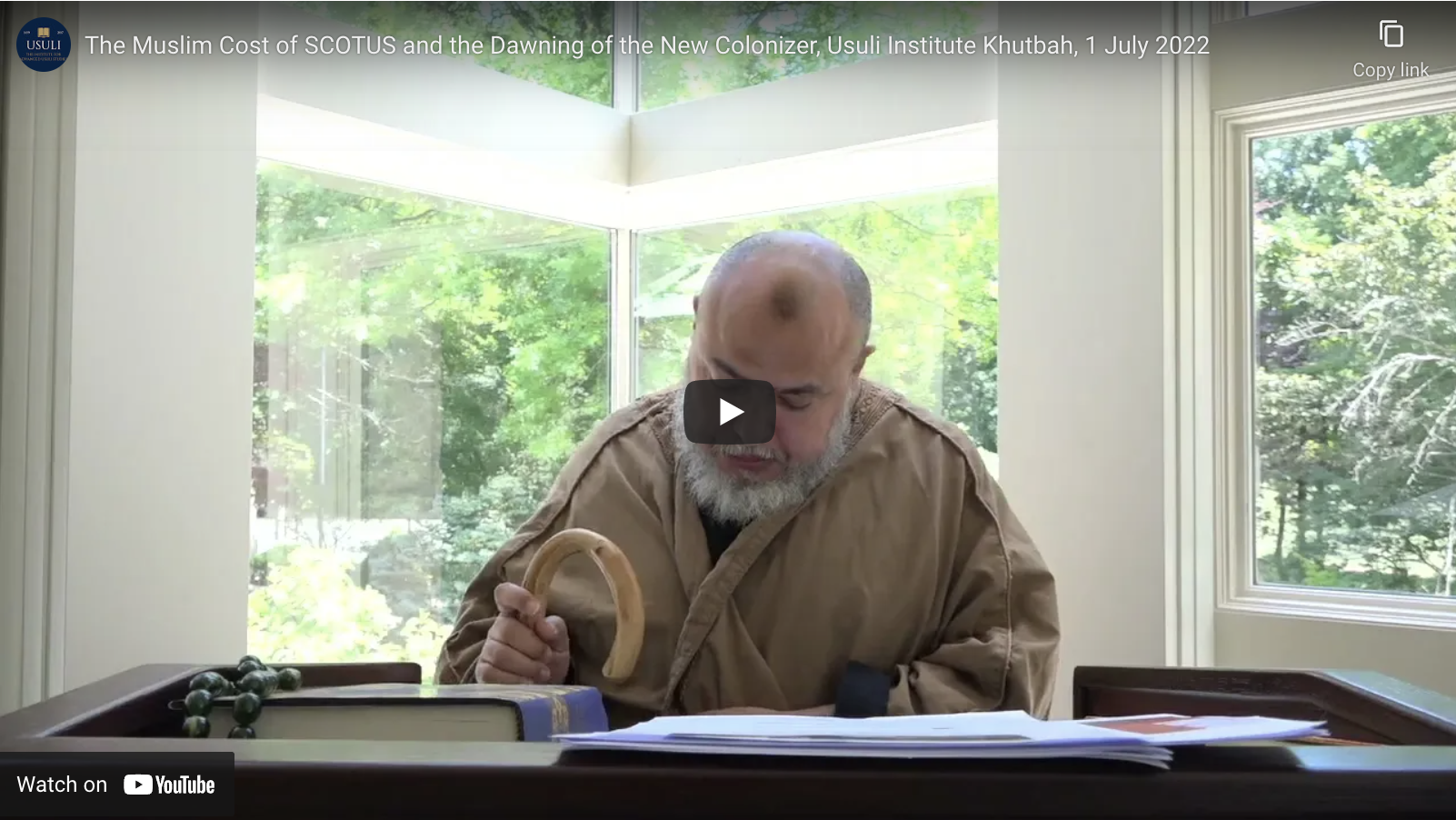Friday Khutbahs (Sermons) · 08. July 2022
We are approaching the days of Eid. The Eid known as the Eid-al Akbar, the bigger Eid. Of course, it is the Eid at the end of the pilgrimage period where Muslims are supposed to think and act in a way that goes beyond themselves and to take care of others. The whole point of Eid al-Adha, the Eid of sacrifice, is that we do not simply celebrate by taking care of our family or worrying about the happiness of our family, but we go beyond ourselves and make it a point to take care of those who are...
Friday Khutbahs (Sermons) · 01. July 2022
I start the khutbah by just noting that today is the beginning of the month of Dhul Hijjah. Dhul Hijjah is the 12th month of the year in the Islamic calendar, and so after Dhul Hijjah, we begin a new year in the Islamic calendar. And at the end of the first 10 days of Dhul Hijjah, begins Al Eid al Akbar or Al Eid al Adha. These are the first 10 days of Dhul Hijjah, in which hajj is wrapping up; because on the ninth day of Dhul Hijjah is the Wuquf al-Arafah, and then the 10th day is the...
Friday Khutbahs (Sermons) · 24. June 2022
How easy it is for people to exist in moral confusion. Moral confusion often exists not so much because of incorrect thinking, but because we do not see what is right in front of us, presenting itself before our eyes; the human ability to distract itself so that it does not see the most obvious of points, the most clear of signs, and the most apparent of messages. Our entire age of consumption and commercialization, which is structured upon some trenchant, immoral truth that stares us in the...
Friday Khutbahs (Sermons) · 17. April 2020
SUMMARY DESCRIPTION: An unusual Ramadan is days away. Taraweeh prayers will not be possible in mosques; no bond of camaraderie with fellow Muslims nor air of blessings and light that come from the prayers and breaking of fasts in Ramadan. Instead, we are challenged this Ramadan to do everything from home. There is the momentous cancellation of umrah and likely Hajj, as Mecca and Medina are under lockdown; this has not occurred in centuries. When Mecca, Medina and the mosques are empty, there is...
Friday Khutbahs (Sermons) · 02. August 2019
As we enter the month of Dhu'l Hijjah, the month of the pilgrimage, Dr. Khaled Abou El Fadl begins by recalling the legacy of Prophet Ibrahim (Abraham) and the Prophet Muhammad, and the wording that the Quran uses to reshape our collective consciousness. He delves into the meaning of the Arabic root word, Qiyam, which God in the Quran uses again and again to describe numerous acts, places, orientations and attitudes that are revealing to the core philosophy of the Islamic message. Although...





